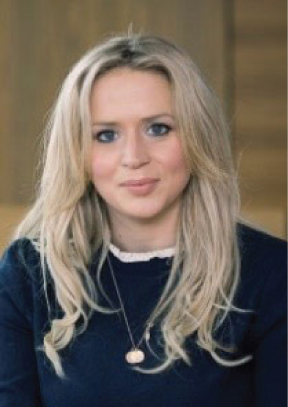My Tax Journey: Sinead O’Brien

Sinead O’Brien is a Chartered Accountant and Vice President of Finance for SkyWorks Leasing Ireland with responsibility for all aspects of finance under the Irish operations. Sinead started her career in PwC where she trained as an auditor. She then joined the finance team in Aer Lingus and moved within the organisation to a role as direct tax manager. While in this role, Sinead completed the Chartered Tax Consultant qualification with Chartered Accountants Ireland. Sinead also lectures for Chartered Accountants Ireland’s Diploma in Tax and Chartered Tax Consultant courses.
How has your work and home life changed since the onset of the coronavirus pandemic?
The biggest change is the lack of structure. Like a lot of people, we have to balance full-time jobs with full-time childcare. With two active toddlers, this has been challenging to say the least. We are very lucky in that we have a lot of family around who usually provide support if the childminder is unavailable. During the pandemic, this support has been removed, making it very difficult to balance it all. Luckily, both of our employers are very understanding; however, at the end of the day, the work still needs to get done. This has resulted in a lot of very late nights and early mornings. It has been difficult to switch off from any of it.
What is the biggest tax and accounting challenge you are currently facing?
The pandemic has brought so much uncertainty to most sectors, and this has really made cash flow the key focus for businesses. Cash flows are now reviewed daily. The budgets put in place at the beginning of the year constantly need to be reassessed and updated, given the ever-changing landscape. Due to the unprecedented times we are in, there is just so much uncertainty, which makes forecasting challenging, to say the least. In terms of tax, it is about continuing to meet compliance obligations while keeping up to date with the various support measures offered by the Government.
What has changed for the better in the profession since you started working as a Chartered Accountant?
Over the last couple of years, I think employers have become much more flexible when it comes to remote working (actual remote working not the COVID-19 kind!) and working days. When I started, that flexibility was not there, and the location of businesses would play a major part in even applying for a role. Nowadays, most people I know in the profession have a level of flexibility in structuring their working day. I think this is a real positive for both employees and employers in the workplace.
What is the most rewarding aspect of your role?
I work in a very team orientated organisation. Everyone shares the same vision and we work hard to achieve this. It is really rewarding to get to the end of a project and to know that you made a real contribution as part of a team. COVID-19 has brought its own set of unique challenges, but it really does feel like we are working together to get through this.
If the Minister for Finance would grant you one wish for the next Budget, what would that be?
Tax support for childcare! As we all know, it is an essential service for working parents; however, it can be a huge financial burden on families. Making such payments tax deductible would be a simple measure which would provide relief to those using this service, streamline the industry and stimulate the local economy through increased spending power.
With the added strain of recovery from the pandemic, do you think that the Irish business community is ready for Brexit?
Over the past few months, I think that Brexit has been put to the back of many people’s minds. For example, the UK Prime Minister Boris Johnson’s initial 31 July deadline for an agreement with the EU has been and gone with little or no progress made. The threat of no deal is looming, something I do not think Irish businesses are fully prepared for. The focus for many businesses, particularly in hospitality, has been reopening post lockdown. A no-deal Brexit would require a huge outlay on processes and procedures. A recent positive is the €5 billion buffer fund announced by the European Council to deal with the unforeseen impacts of Brexit. Ensuring access for Irish businesses to this fund is crucial. Without this, a no-deal Brexit following the pandemic could result in large scale closures, especially amongst SMEs.
